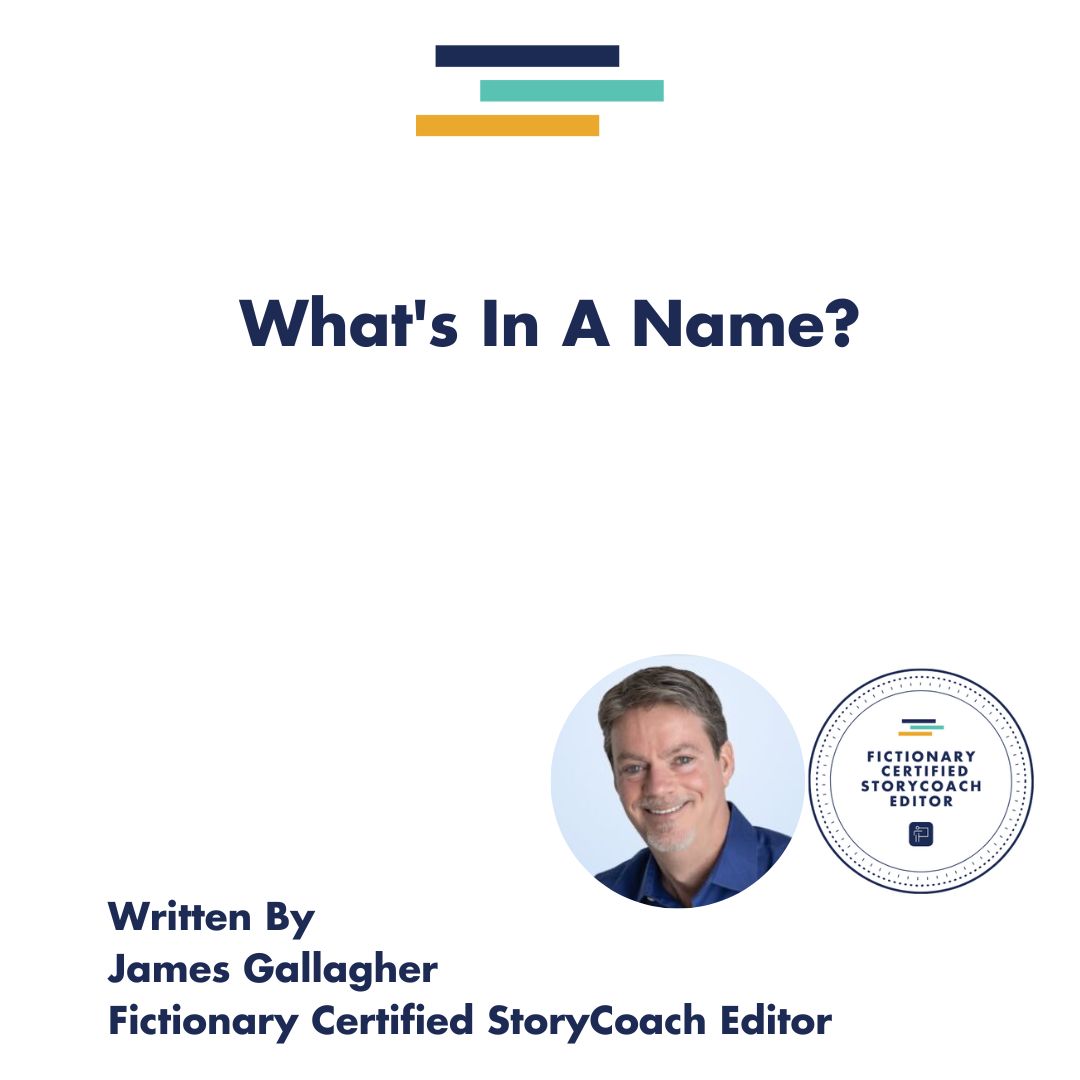 A good character name tells a whole story anytime you hear it. You know the type of name: Jane Eyre, Randall Flagg, Moby Dick, Katniss Everdeen, Lando Calrissian.
A good character name tells a whole story anytime you hear it. You know the type of name: Jane Eyre, Randall Flagg, Moby Dick, Katniss Everdeen, Lando Calrissian.
Seriously, is there a more fun name to say than Lando Calrissian? (And I’m not even a huge Star Wars fan.)
But how do you settle on the character name that’s just right for your protagonist? (Not to mention names for all those pesky side characters?)
If you haven’t been struck with that ever-elusive lightning bolt of inspiration for each of your character names, the following may be helpful for landing on names that (1) inspire you as you write and (2) create a stronger presence for those characters in your readers’ minds.
Names That Evoke
Character names can evoke strength. Or weakness. They can suggest a time period or elicit an immediate response from your audience.
They may get a chuckle, or they may defy expectations (think of a giant named Tiny). They may indicate genre (think of the cast of characters in your favorite fantasy or SF novel).
What else can names evoke?
- Nationality
- Social/class status (Are you old enough to remember Thurston Howell III?)
- Personality (fairly or unfairly, names often become associated with stereotyped depictions; not all Karens are Karens, but for the moment at least that name holds a charge)
For the author, naming gives you power. When you name a character, you know them on a deeper level. You are more invested in them. You can almost feel them freeing themselves from the pages and accompanying you during your time away from the keyboard or notebook.
For readers, names provide access to the story, serving as the signifying container that houses all the character traits and story events related to that character.
As important, names differentiate one character from another. In stories with large casts, the need for this differentiation becomes even more pronounced, as readers have limits to how much they can process and retain.
You might ask: But isn’t this a chicken-or-egg situation? Won’t readers love, hate, or be indifferent to a name based on how well that character is presented?
This is undoubtedly true to some extent, and you can probably think of instances in your life when your impressions of a person on hearing their name changed after you met or got to know them.
But remember, too, that writers are always, with every word, looking to keep their readers reading. So first impressions of every kind make a difference, whether for first lines, first pages, first scenes, or first introduction of a character (and the name is a large part of that introduction).
A Word of Caution
In addition to all the wonderful associations character names can convey to the reader, names can also trip up readers if not employed carefully.
Names that are too similar: A reader will be jarred from the reading experience if they struggle to understand which character is being referred to. This most often happens when characters have similar-sounding names.
Duplicate names: Often, authors throw out a name for a character who appears only once or twice in a story—a random guard, for example, named Mary. Now one hundred pages later the author needs a name for a member of the waitstaff at the big dinner scene: I know, Mary!
This happens more than you might think, and even if the reader doesn’t know where they’ve seen that name before, it will most likely register on a subconscious level and cause a little mental static. (And you shouldn’t, either, feel compelled to name every minor character.)
Overuse of names: Overusing a name, especially in dialogue, can wear on readers. But you don’t want to confuse readers by the misguided notion you can’t repeat the name too often and confuse your readers by being too vague in referring to the character.
Unclear antecedents: In an effort to avoid repeating a name, authors naturally mix in pronouns, which is a good practice. But it must be clear which character the pronoun is referring to.
For a deeper dive into some of these issues, see Kristina Stanley’s “An Editor’s View of Character Names.” (https://temp-fictionary.flywheelstaging.com/journal/an-editors-view-of-character-names/)
*Another Quick Caution*
Authors change character names even late into their drafts, but beware of Replace All when doing a find and replace. This can result in comical miscues like “Billtmas” when “Bill” replaces all instances of “Chris.”
Tips for Naming Characters
Name your characters with intention. This might be obvious, but think deeply about the names and associations you’re trying to evoke. You might have to write out and live with the character for a bit before landing on the name, but years after releasing your story you’ll be all the happier when you’ve gotten the name just right.
Assemble your cast: List all your characters so you can take stock. Are any names too similar? How do the names play off against each other? How do first names and last names work together? Are there subgroups of characters within your bigger cast? How do the names compare in group, and how do the names in the group compare to names in other groups?
Also remember that when you load your manuscript into Fictionary, the software supplies not only the main cast of characters but a character list for each scene, including characters who either appear or are mentioned in the scene.
Ask questions: What would a blunt name say about your character? A more elaborate name? One of undeniable power? One that suggests vulnerability?
Listen: Poetry combines sound and meaning. Listen to the name. Close your eyes. What is the first image that comes to mind? How does it sound when you speak it? How does it sound when someone else says it? How does it look on the page?
Where Can You Find Names?
Years ago, the phone book was the go-to place for finding names. Today the internet provides all manner of resources for finding names.
Search sites that aid with choosing baby names. Try a name generator, including these:
- https://www.fantasynamegenerators.com/
- Name-generator.org.uk/character
A quick search will also produce popular names by year or century, helpful for naming characters in your nineties YA or Regency romance.
Think of names in your social circle and family. As with naming a child, it can be a great honor for someone to have a character named after them. But there’s also the potential to offend if that character has less-than-desirable traits.
Mentally scroll through your all-time-favorite authors and characters. But, of course, honor the distinction between homage and infringement on another’s property.
Play with anagrams. This can be fun for readers, especially if they discover a hidden meaning on their own.
On occasion, authors will even hold contests to have a fan’s name included in an upcoming work.
And What about Nicknames?
Lovers of Russian lit know how effectively name variations can establish relationships among characters.
Nicknames can serve a great purpose in showing how characters relate to one another, whether that suggests derision, friendship, or formality.
Nicknames should, however, in general be used sparingly and with intentionality, because you don’t want readers to wonder who is being referred to.
Nicknames often work best when employed by characters within the story, within dialogue. If the third-person narrator refers to a character as Elizabeth in one place and Liz and Lizzie in other places, the reader might feel the author has a lack of control over the story and an unsure handle on the characters.
Parting Thought
Character names will live on once they’re out in the world, so authors do well to find those names they are most happy with, that resonate most in their minds and in the minds of their readers. With a little luck, your next character name will have other authors lamenting, Oh, why didn’t I use that name?
Post Written by James Gallagher
 James is a Fictionary-Certified StoryCoach, copy editor, and proofreader. James has worked on more than 200 books and particularly enjoys horror and romance. An active member of the editing community, James loves to help authors bring out the best in their stories.
James is a Fictionary-Certified StoryCoach, copy editor, and proofreader. James has worked on more than 200 books and particularly enjoys horror and romance. An active member of the editing community, James loves to help authors bring out the best in their stories.
More about him can be found at CastleWallsEditing.com.
Fictionary will be hosting the Book of the Year Award again in 2023. To enter, come join the Fictionary community and get to know other writers and editors.


